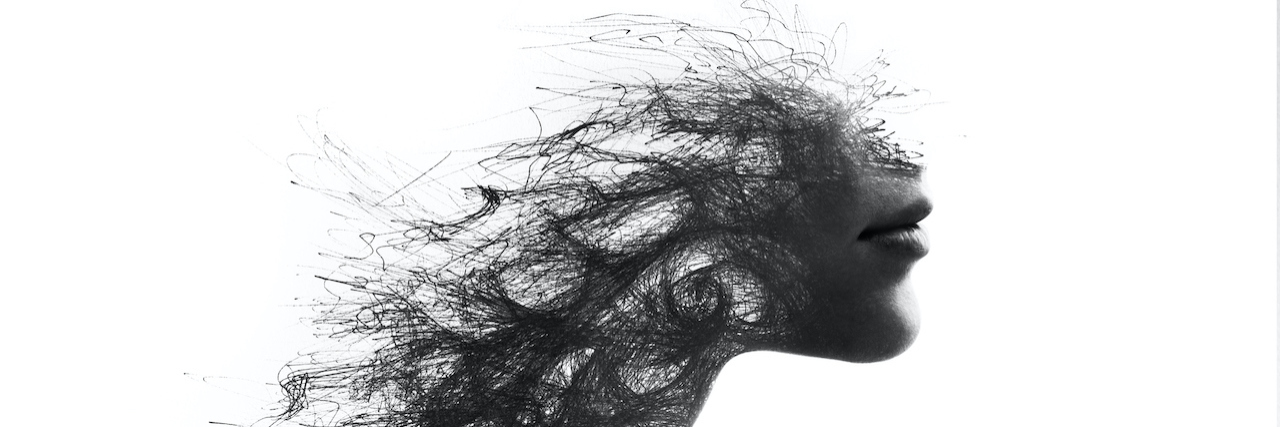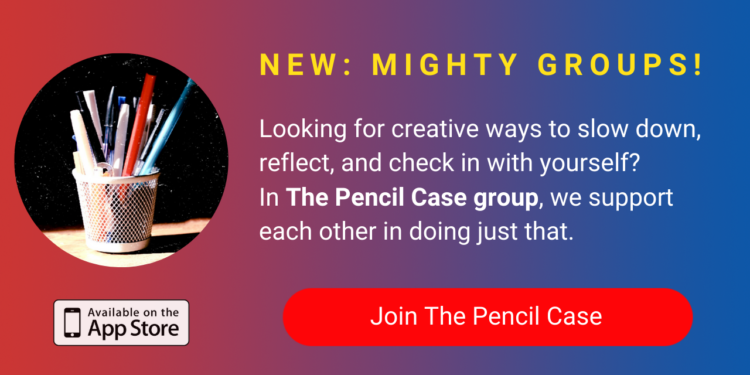The Deceptive Reality of Developing an Eating Disorder
Editor's Note
If you live with an eating disorder, the following post could be potentially triggering. You can contact the Crisis Text Line by texting “NEDA” to 741741.
“You have an eating disorder.”
I was 13 years old, sitting in a therapist’s office, when I was confronted with the reality of my illness. I had suspected I had a problem, but I refused to label it. I refused to give it power. I thought I would never have to face reality if I didn’t give it any attention.
I was wrong. So very wrong.
My eating disorder began after a single comment was made to me on a walk with my mother. My body was changing quickly as a healthy pre-teen, and I was, for the most part, unaware and unconcerned. That is, until my mother said, “Your thighs have gotten so big!” I remember an overwhelming feeling of shame and disgust washing over me all at once. Negative thoughts raced through my mind. I was confused. Why did she say that? Is that a bad thing? Am I fat? I asked if they were “too big,” and her answer only justified my fears.
I ran home sobbing and spent the remainder of the day observing my body in the mirror, taking a mental note of everything I didn’t like about myself, everything that needed to be “fixed.” I had never heard of anorexia and I had no knowledge about weight loss. Yet, I knew that eating less would lead to weight loss. I knew nothing about the effects of starvation or the consequences, but I didn’t care. That night, I planned to skip dinner entirely. However, I was afraid my parents would notice and question me, so I ended up eating. In my mind, I was planning all the ways I would hide my restriction and drop weight as soon as possible.
Within three months, my weight had plummeted drastically. I was so ill that I spent my days lying on the floor in a makeshift bed (I’m not sure why I wasn’t sleeping in my actual bed, at that time) and watching food videos in an attempt to satisfy my hunger through visual means. My tailbone was in constant pain from having pressure put on it without any fat to protect it. My naturally thick hair turned brittle and thin. My nails were tinged purplish-blue. My eyes were sunken in. The life was sucked out of me. A journal entry from this time reads, “I looked it up, and I think I have ‘anorexia’. No… I can’t have that. But I have all the symptoms… do I have an eating disorder?”
Even when my body was shutting down, even when I was slowly killing myself, I doubted that I was actually sick. My brain was so fogged, my body so accustomed to restriction and pain, I truly thought I was perfectly fine.
In just three months, I had gone from three meals a day to barely one. I had gone from a cheerful, social kid to complete isolation; and I didn’t even notice.
This is the reality of developing an eating disorder. Eating disorders are so deadly because they are deceptive and swift. Their goal is to kill their victim, and without recovery, that is the end result.
Recovery is possible, and, although I haven’t experienced it yet, I am hopeful that I will in the future. Recovery takes an extraordinary amount of work, but it is necessary for survival and freedom — something that we all deserve.
Getty image by Victor_Tongdee


